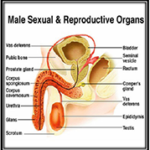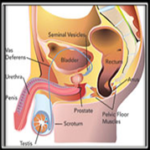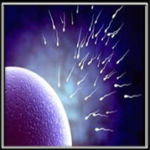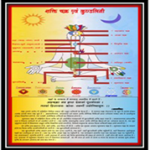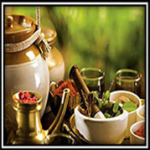Immunity & Ayurveda/
WHAT IS IMMUNITY- Immunity refers to the body’s ability to prevent the invasion of pathogens. Pathogens are foreign disease-causing substances, such as bacteria and viruses, and people are exposed to them every day. An immune response is the body’s defense system to fight against antigens and protect the body.
When the body senses foreign substances (called antigens), the immune system works to recognize the antigens and get rid of them. Each second, human beings are exposed to bacteria, viruses and fungi, which try to enter the body to make it their permanent home. Therefore, to protect itself from these threats, the body has an effective, fast and intelligent system called: the immune system.
This system is composed of a network of cells, tissues and organs that coordinate the defense of the body against any threat. Without the help of this network, any small injury (such as a paper cut) could be lethal.
White blood cells, also called leukocytes, are the immune system heroes, as they are the ones that fight germs directly. They only represent 1% of the total blood cells, but play an important role. When a part of the body is under attack, the white blood cells are the ones that destroy the dangerous substance, also called antigen, and prevent the body from getting sick. This protection is called immunity. They are made in the bone marrow and are stored in the blood and lymphatic system. In fact, white blood cells do not live very long. Their lifespan ranges from 1 to 3 days, so the body is always making new ones.
TYPES OF IMMUNITY- Three types of immunity exist — innate, active and passive:
1. Innate immunity is general protection that a person is born with, including physical barriers (skin, body hair), defense mechanisms (saliva, gastric acid), and general immune responses (inflammation). This type of immunity is considered non-specific. Although the immune system does not know exactly what kind of antigen is invading the body, it can respond quickly to defend against any pathogen.
2. Active immunity [Acquired (adaptive)] occurs when our own immune system is responsible for protecting us from a pathogen. It is a type of immunity that develops from immunological memory. The body is exposed to a specific antigen and develops antibodies to that specific antigen. When next time said antigen invades, the body has a memory of the specific antigen and already has antibodies to fight it off.
Acquired immunity can occur from exposure to an infection, wherein a person gets a disease and develops immunity as a result. Acquired immunity also occurs from vaccination wherein the vaccine mimics a particular disease, causing an immune response in the vaccinated individual without getting them ill.
3. Passive immunity occurs when we are protected from a pathogen by immunity gained from someone else. It is the body’s capacity to resist pathogens by “borrowing” antibodies. For example, antibodies can be transferred to a baby from a mother’s breast milk, or through blood products containing antibodies such as immunoglobulin that can be transfused from one person to another like plasma therapy. The most common form of passive immunity is that which an infant receives from its mother. Passive immunity is temporary until the antibodies go, since the body has not produced the antibodies.
HERD IMMUNITY- ‘Herd immunity’, also known as ‘population immunity’, is the indirect protection from an infectious disease that happens when a population is immune either through vaccination or immunity developed through previous infection, thereby reducing the likelihood of infection for individuals who lack immunity. This means that even people who aren’t vaccinated, or in whom the vaccine doesn’t trigger immunity, are protected because people around them who are immune can act as buffers between them and an infected person.
Once herd immunity has been established for a while, and the ability of the disease to spread is hindered, the disease can eventually be eliminated. For example, this is how the world eradicated smallpox. However, natural herd immunity – achieved through infection rather than vaccination – can be challenging to induce through unchecked infection as there would be a very high rate of serious illness and death, with health systems overwhelmed well beyond their surge capacity, even in high-income countries. This is why herd immunity is generally pursued through vaccination programs.
The new coronavirus has a lower infection rate than measles, with each infected person passing it on to two or three new people, on average. This means that herd immunity should be achieved when around 60% of the population becomes immune to COVID-19. But herd immunity is vulnerable to the individuals who lack immunity, particularly those who choose not to get vaccinate, enjoys, free ride off the herd immunity created by those who are immune. As the number of free riders in a population increases, outbreaks of preventable diseases become more common and more severe due to loss of herd immunity.
Ayurveda Concept Of Immunity:
Ayurveda, the traditional medicine system of India, has a huge potential in preventive and curative healthcare. Ayurveda, since times has emphasized more on body’s response and occurrence of disease only if the Bala (Body immunity) is reduced. Ayurveda compares the concept of healthy body to a barren land. Just as a barren land cannot bear fruits or flowers, similarly healthy body cannot favors infectious conditions. Flowering depends on factors like right timing, fertile land, and good quality of seed. Similarly, the infections can develop when the body immunity is low, infectious agent is strong and time refers to the depleted Bala (body immunity) stage.
The Bala is used as synonym to Prana and Ojas. They have underlying meaning of bio-strength and vitally with natural resistance against ageing and disease. The Ojas have direct influence on the body’s defense against decay, degeneration and infections. The Ojas prevents, resists and overcomes such factors which are produced in the course of the vital activities of the organism and may lead to decay and degeneration of the tissues (Dhatus) of the body. These obviously relate to immunological factors both cellular and hormonal, that destroy or neutralizes the disease causing agencies which invade the body.
Immunity of an individual also depends upon nutritional, environmental and individual factors – both physical and mental.
The Bala Is Stated To Be Of Three Types:
(1) Sahaja Bala – It is genetic and inborn resistance to disease, which exists since birth. It is said to increase with the growth of tissues and does not depend upon any other cause.
(2) Kalaja Bala – This type of immunity is said to be influenced by seasonal traits and the age of the person.
(3) Yuktikrit Bala – This type of body bala refers to modulation of body’s resistance against diseases by resort to appropriate Ojovardhak (organic – wholesome) diet, physical exercise, rest, restorative and Rasayana therapies in keeping with seasonal needs.
In Ayurvedic practice, the objective of immune enhancement is achieved through the use of the Rasayana and Vajikarana therapy, following Acar Rasayana measures and also by use of Ojovardhaka remedies. The best ayurvedic sexologist in India can rightly advise you about the Ayurvedic medical treatment and how it can solve the sexual problems
Rasayana Tantra is one of the eight clinical specialties of Ayurveda. It refers to nutrition, natural resistance and geriatrics. Apparently, Rasayana means an improved state of nourishment, which in turn upholds increased immunity and youthfulness. Rasayana can be a drug, diet or even a life style and conduct i.e. which may be helpful in achieving the immunity or healthy body goal. The Rasayanas are supposed to strengthen Oja and Bala. It is stated to contribute to the integrity of body tissues and thus increases longevity. The other benefits of this therapy are the promotion of memory and intelligence, the preservation of youth, luster, complexion and voice. We provide world class treatment and ayurvedic medicines for men and women. We Offers Best Ayurvedic Treatment for Sexual Health Treatments.
Factors that effects immunity of body (bala) according to ayurveda:
1. Desha (birth place) – Place of excellent strength i.e. place where animals & plants are with excellence of constitution, complexion & strength. Such place has normal state of environment i.e. no degrade or extreme conditions. Here water of river & air in environment is always fresh. So birth in such places lead to an individuals with excellent strength.
2. Kala (time) i.e. visarga kala (cold season in general), at this time all plants &environmental factors are strong and healthy so birth in this time helps to improve strength.
3. Excellence of maternal and paternal endowment.
4. Proper and good aahar (diet), excellence of nourishment.
5. Ability to adapt – being habitual to all conditions related to diet, immunity booster ayurvedic medicine & environment.
6. Excellence of the mind.
7. Yuvan (youth) – in middle age an individual has good strength.
8. Karma – karma are the deeds of an individual regarding health (panchakarma), diet, talk and behavior in society.
9. Sexual excitement or being enthusiastic.
Ayurveda’s emphasis on the role of Dosas and their imbalance as the main causative factor of the diseases, assumes importance in the light of the fact that mere presence of causative organisms in the environment does not necessarily results in the manifestation of the disease. The concepts of Ojas and Bala, of the inherent immunological capabilities including innate immunity and acquired immunity in terms of Sahajabala and Yuktikritabala etc., playing key role in the health and disease have to be understood and appreciated by the modern immunologists.
To Achieve Improvement of strength one can work with following three routes:
1) Diet (Ahar)- Regular dietary contents affects fundamentals of body having association with strength. Sweet (madhur) itself described as strength promoting property. An individual having habit of consuming all rasa (wholesome diet) has excellent strength. Diet should include local and simple seasonal homemade food. Avoid junk food and oily-spicy food habits.
2) Code of conduct (vihar)-
*To follow proper diet, well sleep and bramhacharya (supreme reality).
*Daily massaging of body with tila tail.
*Every day bath – as explained in Ayurveda, below neck portion use hot/warm water for bath & head and face should be washed with cold water.
*Use of footwear.
*Keeping Umbrella with and mala dharan (use of ornaments).
*Daily walking.
There are some habits mentioned in Ayurveda to increase strength of specific organs like, application of oil on feet increases strength of feet, pouring few drops of oil in ear, use of Dhumpan improves the bala of organs that are situated above neck (hairs, ear etc.)
3) Medication (aushadha)- In Ayurvedic texts many combinations of drug are mentioned with strength improving results. Some are mentioned under rasayan & vajikaran & other are under the treatment of diseases. Some strength promoting drugs are Bala, Ashwagandha, Shatavari, Ripened fruit of mango, almond, pista, Guduchi, Haritaki, Amalaki, Bibhitaki. Most of these drugs are having madhur rasa (Sweet taste).
Maximum strength promoting combinations are in the form of medicated ghrita and sweetened semisolid form of concentrated decoction (avaleha) example rasayan like chyavanprash consumption in day to day life. As described in ayurvedic texts, strength promoting combinations should be consumed with easily available food products like milk, ghee, honey. They are used to increase strength of given drugs towards results. These co-drugs act as catalyzers, carriers thus helping body in improving its immunity.
CONCLUSION: Strength is important property of body. Advancement of Strength is Balya karma. Balya drugs can be advised from conception of mother to improve natural strength of baby. Kalaja bala &Yuktikrut bala of an individual can be improved & maintained with the help of above explained Ahar, vihar & drugs. Sahaj & kalaj bala can be improved & maintained with the help of yukti. With the help of above mentioned theory in Ayurveda; one can improve strength (bala) i.e improving the overall immunity of the body.
Here is a basic decoction (kadha) for natural immunity- ( 2 Servings )
Ingredients: 5-6 Tulsi leaves,
1 Black or 2 green Elaichi,
½ tsp turmeric powder,
5-6 pieces of laung,
8-10 pieces of Kali mirch,
4 inch stick of Dalchini,
1inch sliced ginger,
and 1 tbsp munakka.
Wash, peel and coarsely pound the ginger in a mortar and pestle and add turmeric. Then boil it in 4 cups of water until the colour turns yellow and you start getting a whiff of ginger. This should take 5-6 minutes on medium heat. Then add the rest of the ingredients in the turmeric-ginger water and let it boil on simmer for at least 15-20 minutes. The water will reduce, so adjust the quantity according to how many cups you want to make. Put 1 tsp honey in a cup and strain the kadha. Sip when warm.
All the above mentioned herbal drugs have their own properties (guna) and can result in causing various unwanted actions on the body, so daily consumption of all the mentioned drugs are not recommended. It is always good to understand prakruti (body nature according to ayurvedic classics) of an individual and have herbal decoction accordingly.

